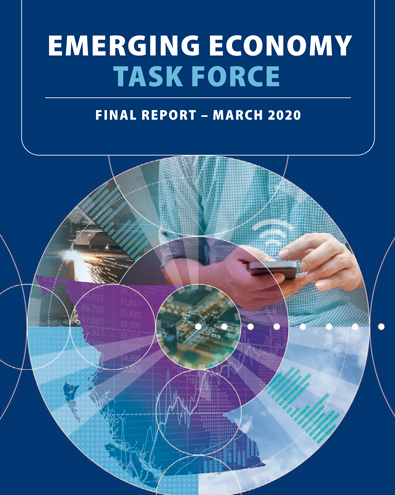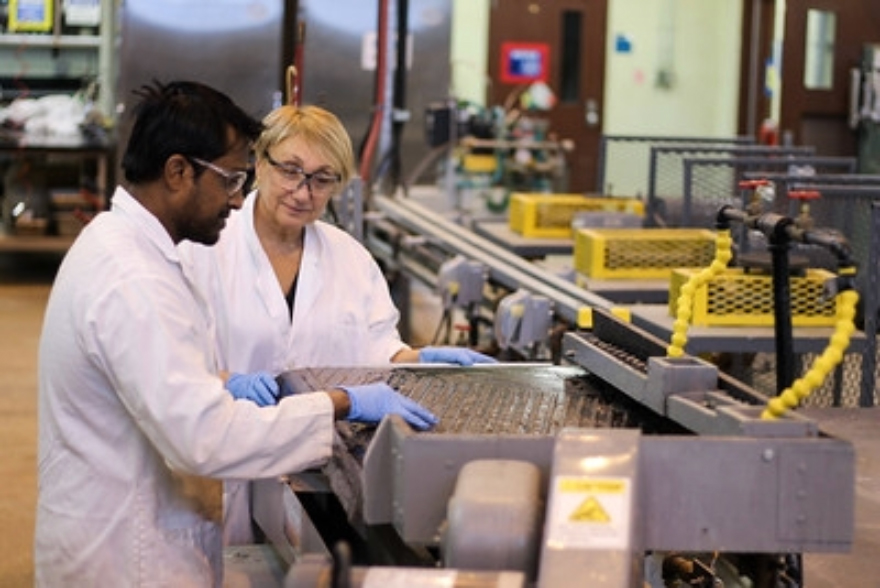
While the reports focus on providing concrete policy recommendations for the BC Government, those recommendations have implications for cleantech companies that are on a product development and innovation path.

Both reports emphasize the importance of R&D spending in a world where economies are increasingly dominated by intangible assets such as intellectual property (IP). Capturing, protecting and leveraging intellectual property rights is a significant factor in long term success. Statistics Canada data shows that small and medium enterprises in Canada which have formal IP are two to four times more likely to export, and 60 per cent more likely to be high growth.
Along the same lines, a European study on small and medium enterprises, undertaken by research centre Paristech Mines, suggested start-ups were three times more likely to be successful if they had one patent, and five times more if they had multiple patents.

R&D is exciting. You have an idea. You build a budget, put together a lab, hire support staff, purchase equipment. Your nascent company starts to move beyond the lab into scaling up and pilot projects, and you start to face mounting expenses. Financing is tough and budgeting is tight for startups. This is especially true in cleantech, where the industrial applications and large-scale infrastructure needs will often necessitate big-budget expenditures. It’s tempting to forego, stall or economize on your IP costs.

While the cost of securing your IP may be high, it must be written into your business plans and financial models right in the initial planning phase of your business or project and should not be delayed or minimized. If you don’t have IP secured early in the game, it will cost more and cause problems over the long term.
The Innovation Commissioner Report recognizes the cost of patenting as an impediment to securing IP rights. While lifetime patent costs are significant, they can be deferred and managed by leveraging tools such as provisional and PCT applications and by relying on grace periods if necessary, and value for dollar spent can be maximized by carefully weighing technological and commercial value for each innovation prior to filing, by considering trade secret protection as an alternative to patents, and by periodically reviewing and culling deadweight from a patent portfolio.

One of the problems that may arise over the long term is the lack of leverage that a company could face if they haven’t secured IP rights in non-Canadian markets. If they haven’t secured IP rights outside of Canada, not only do they risk shortchanging the value of their IP in a funding or financing negotiation, they also risk losing control of IP rights to non-Canadian entities and potentially being disqualified from future government funding (such as from NRC-IRAP).
Companies that export tend to be more successful, and from a larger economic viewpoint, they create more jobs and attract more investment. As the Task Force Report notes:
“As a relatively small jurisdiction representing less than 1% of North America’s population and GDP, British Columbia exported $104 billion worth of goods and services in 2018 to other countries and provinces combined (equal to 39% of B.C.’s GDP).”
Securing IP rights in non-Canadian markets gives BC companies the flexibility to exploit those markets themselves and to license the right to exploit those markets to third parties, both of which can result in direct revenue and increased corporate valuation.

The Innovation Commissioner Report notes that “the world is being transformed by intangible assets”. It is, and so is the cleantech industry along with it. Big data, AI, robotics, machine learning, sensors, orchestration, smart grids (smart everything) - they are transforming how business is conducted, and represent the new wealth building opportunities for Canada and Canadian companies.
Understanding how IP works and taking important steps early are crucial for your long term success as Canadian cleantech company.
About the Author
Roch Ripley
Gowling WLG
LinkedIn: https://www.linkedin.com/in/roch-ripley-1272a9/?originalSubdomain=ca
Roch Ripley is a lawyer and patent agent with a degree in electronics engineering, and the head of Gowling WLG Vancouver's intellectual property group.
Note: Guest posts and articles represent the diversity of opinion within the cleantech world and do not necessarily reflect the official position of Foresight. They are presented here as part of our mandate to share the voice of the Cleantech community in Canada.



